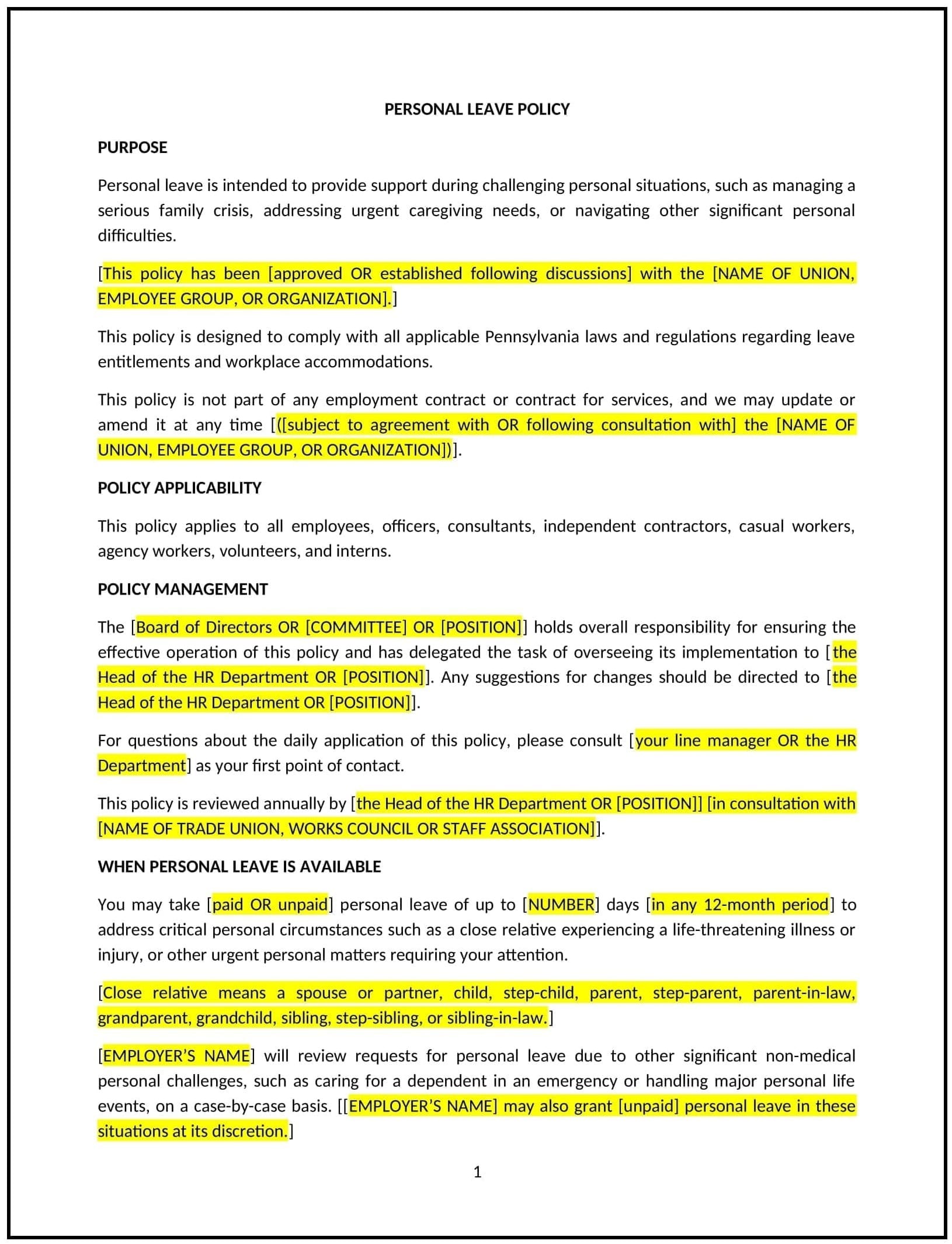Personal leave policy (Pennsylvania): Free template
Got contracts to review? While you're here for policies, let Cobrief make contract review effortless—start your free review now.

Customize this template for free
Personal leave policy (Pennsylvania)
This personal leave policy is designed to help businesses in Pennsylvania provide employees with clear guidelines for requesting unpaid time off for personal reasons, such as medical appointments, family obligations, or other non-work-related matters. By defining eligibility, application processes, and expectations, this template ensures consistency and fairness while reflecting Pennsylvania-specific workplace standards.
By using this template, businesses can promote transparency, support employee well-being, and maintain operational stability.
How to use this personal leave policy (Pennsylvania)
- Define eligibility: Clearly outline which employees are eligible for personal leave, including criteria like employment status and tenure.
- Include application procedures: Provide details on how employees can request personal leave, including required notice periods and documentation.
- Specify leave duration: State the maximum amount of personal leave allowed and any conditions for extensions.
- Address job protection: Clarify whether employees are entitled to return to their role or a similar position after their leave, based on company policies.
- Reflect Pennsylvania-specific considerations: Tailor the policy to align with local labor practices and workplace trends, such as addressing industry-specific needs.
Benefits of using a personal leave policy (Pennsylvania)
A well-structured personal leave policy supports employee well-being and operational consistency. Here's how it helps:
- Promotes work-life balance: Enables employees to address personal matters while maintaining their job security.
- Enhances transparency: Provides clear expectations for requesting and managing personal leave.
- Reduces misunderstandings: Establishes consistent guidelines for handling leave requests, minimizing disputes.
- Supports employee retention: Demonstrates a commitment to accommodating employees’ personal needs, fostering loyalty.
- Reflects local needs: Addresses Pennsylvania-specific labor practices and workplace dynamics, ensuring relevance for local businesses.
Tips for using a personal leave policy (Pennsylvania)
- Communicate the policy: Share the policy with employees during onboarding and ensure ongoing accessibility.
- Train managers: Equip supervisors with the knowledge to handle personal leave requests fairly and consistently.
- Document leave requests: Maintain detailed records of leave applications and approvals to ensure transparency and accountability.
- Plan for coverage: Develop strategies to manage workload and minimize disruptions during employee absences.
- Review periodically: Update the policy to reflect changes in Pennsylvania labor laws, business practices, or workforce needs.